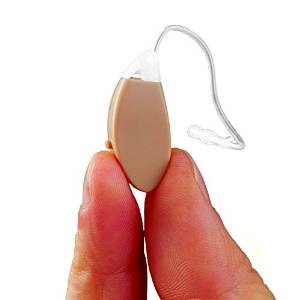Welcome to Hearing Hub. We have been testing and reviewing hearing amplifiers since 2014.
Here you will find everything you need to know about different types of personal sound amplification devices for healthy hearing.
Whether you are looking for something to help you hear conversations at home, in church, and in restaurants or understand your TV more clearly, we have educational information on what products will work best for your hearing loss.
See all of our posts on different amplifier styles and situations, including:
- The Best Hearing Amplifiers of 2021
- Devices to Help you Hear your TV
- Hearing Devices to Help People in Nursing Homes and Hospitals
- Behind the Ear Styles
- In-ear Styles
- Hand-held Devices
- Wireless TV Speakers for Hard of Hearing
- Hearing Amplifiers and Assistance for Movies, Church, and Restaurants
If you have noticed a loss or a change in your hearing or a loved one, you may have questions about what kind of devices or products are available that can help the hard of hearing.
For people who have mild to severe hearing loss, there are many useful products and new technology that can help you or someone you know makes everyday life much easier.
Whether you already have a hearing aid and need additional sound enhancement or aren’t ready for a hearing aid but still need hearing assistance, we are an educational resource for what you need to know to help manage hearing loss.
Hearing loss is a common condition that affects as many as 48 million people in the United States alone. By age 65, it is estimated that one out of every three people has some form of hearing loss. Hearing loss can significantly impact the quality of life, making it difficult for people to talk with friends or family.
It can also lead to dangerous situations where people cannot hear important phone calls, medical advice, or alarms. Losing your hearing can be frustrating and embarrassing, but it doesn’t have to be. People with hearing loss must be aware of hearing products and devices that can help them hear better.
What Should I Do If I Have Trouble Hearing?
If you think you may be experiencing hearing loss, it is a good idea to visit a hearing professional in your area for a hearing evaluation. You can see different professionals, including your primary care physician, an audiologist, or an otolaryngologist.
If you aren’t ready to visit a professional, there are online hearing tests or self-administered hearing tests that you take over the phone for a small fee. These are generally completely automated and anonymous. Using these types of hearing tests can give you a quick assessment of your hearing, so you take the next steps if necessary.
It is also important that let family and friends know that you are having trouble hearing them so they can give you the help and support that you need.
The idea of losing your hearing can be distressing, but it is important to seek professional advice if you suspect something wrong with your hearing. There is a lot of support and advice that you can get from different organizations that will help you adjust to any hearing loss that you are experiencing.
Hearing Aids vs. Hearing Amplifiers
Hearing Amplifiers are small electronic devices that fit into the ear and amplify sound. They are intended for people with mild to moderate hearing loss. Hearing amplifiers can be a useful alternative to a hearing aid. The big difference (other than cost) between Personal sound amplifiers and hearing aids is that personal sound amplifiers are not regulated under the Food, Drug, and Cosmetic Act. This is because they are not intended to cure hearing impairment and do not alter the structure or function of the body.
Since you don’t need to visit a medical professional to get a hearing amplifier, some people consider them the audio version of reading glasses. Recommended uses for PSAPs are generally bird watching, hunting (listening for prey), hearing conversations that may be a distance away, or help with hearing the television. If you are interested in Personal Sound Amplifiers, please see our Buying Guide for more information.


